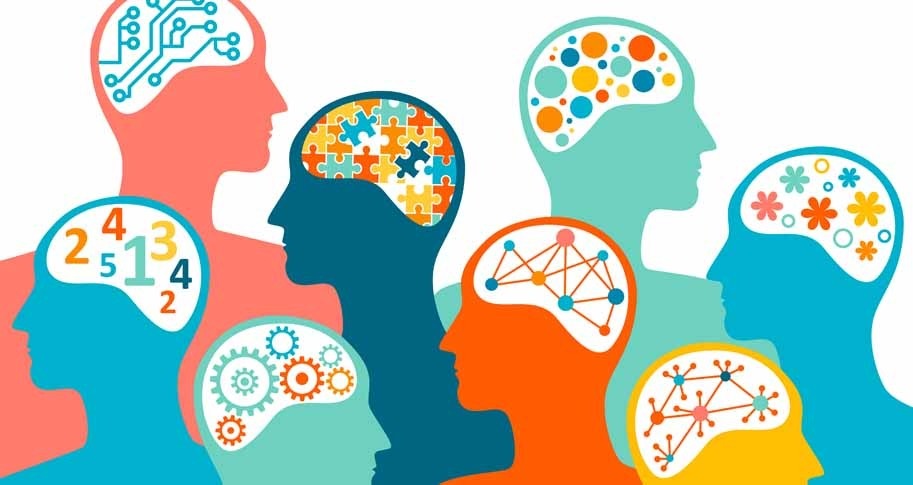
Image credit: Walton College
As social models of disability and neurodivergence gain widespread acceptance, and workplaces strive for better inclusivity, misunderstandings between individuals who are neurotypical—those who think and process information in ways that are typical—and neurodivergent—those with any variation in their mental or neurological functions—remain nevertheless rampant.
This is due in no small part to the “double empathy problem,” where individuals of varying neurotypes may struggle to understand each other’s perspectives because they rely on different ways of thinking and behaving. Because they’re based on neurotypical interpretations of these differences, the inevitable result of traditional efforts toward inclusion is that they tend to reinforce stereotypes and make organizational fit difficult for neurodivergent employees.
The University of Arkansas’s Maira Ezerins, Drs. Lauren Simon and Christopher Rosen, along with their coauthors Drs. Timothy Vogus, Allison Gabriel and Charles Calderwood, turn a critical eye toward traditional approaches to fit in the workplace in “From environmental niches to unique contributions: Reconsidering fit to foster inclusion across neurotypes.”
These researchers argue it’s time to “move beyond” searching for specialized places within systems designed for neurotypical individuals where neurodivergent people can succeed, and instead work together to create systems that are inclusive and considerate to individuals of all neurotypes.
The Importance of Organizational Fit
Organizational fit refers to the degree to which an individual’s values, personality and goals align with the culture and goals of the organization for which they work. It is an important factor in job satisfaction, performance and employee retention. When employees feel that their personal values and goals align with the organization’s culture and goals, they are more likely to be motivated, engaged, and committed to their work. Additionally, individuals who have a strong connection to their workplace tend to experience less stress and are less likely to experience health problems and burnout.
The researchers emphasize that a lack of workplace fit for neurodivergent individuals is rooted in a phenomenon called the “double empathy problem,” or the disconnect in understanding across neurotypes. When individuals of varying neurotypes see and experience the world in different ways, they can have difficulty empathizing with and understanding one another. This can lead to different understandings of workplace expectations and relationships.
The issue is further compounded by the tendency of workplaces to focus on organizational culture-based fit. Though scholarship on neurodivergent employees has found work success to depend on fit between personal interests and work tasks, the tendency of workplaces to prioritize interests more aligned with neurotypical sensibilities creates a divide between neurotypical and neurodivergent employees.
A Shift in Mindset
The researchers have some ideas for overcoming these misunderstandings. Valuing neurodiversity in the workplace requires a shift in mindset; rather than focusing on how well individuals fit into the existing workplace culture, the emphasis should be on recognizing and leveraging the unique cultural contributions of neurodivergent employees.
Such an approach would explicitly value and accommodate different ways of seeing and experiencing the world, creating more opportunities for neurodivergent employees to showcase their unique talents and benefiting workplaces by allowing them to attract and retain a diverse range of talent, leading to increased innovation and creativity.
Since most traditional work roles aren’t tailored to individuals and their unique contributions, the researchers argue for some redesign in the workplace. One potential solution is the creation of idiosyncratic jobs, where formal job duties match the abilities or interests of specific individuals and allow for personalized titles that reflect individual strengths. Another potential solution is involving employees and managers in job crafting, a collaborative process where tasks, relationships, and perceptions of a job are tailored to each individual to better suit their working style and preferences—such as allowing for more flexible hours or providing a quieter workspace.
Such adjustments, when seen as accommodations, may stigmatize neurodivergent employees. But the researchers argue that focusing on what employees can bring to the table, in addition to implying that every employee has a unique quality to contribute, pushes organizations to commit to “providing supports and accommodations to all that need them to access unique contributions.” This in turn helps to “build a foundation for everyone to make contributions to the work environment, maximizing fit for all.”
Recognizing and valuing neurodiversity in the workplace requires a shift in mindset, where the focus is on how individuals can contribute their unique value rather than fitting into a predefined mold. By embracing neurodivergent perspectives and accommodating diverse ways of seeing and experiencing the world, workplaces can foster a more inclusive and thriving environment for all employees.
Maira EzerinsMaira E. Ezerins is a PhD candidate, Walton Doctoral Fellow, and Doctoral Academy Fellow in the Department of Management at the University of Arkansas. She received her M.A. in Industrial-Organizational Psychology and Human Resource Management and an M.B.A. from Appalachian State University. Broadly, her research focuses on fostering inclusive, equitable, and safe work environments. More specifically, she has investigated the experiences of women and nonbinary employees, neurodivergent employees, and blue-collar or front-line workers. Within this research area, she is particularly interested in how minority employees navigate interpersonal relationships, as well as the ways technology can be leveraged to mitigate inequality.
Lauren SimonLauren Simon is an associate professor in the Department of Management at the Sam M. Walton College of Business at the University of Arkansas. She earned a Ph.D. in management, focused on organizational behavior/human resources at the University of Florida. Simon has a passion for career development and helping students successfully transition into the professional workforce, as well as for partnering with organizations to help them better manage and engage their workforce. Her research focuses on individual and social factors that influence career success, including personality and ability, organizational socialization, interpersonal work relationships (particularly among managers and employees), and leadership. Professor Simon’s work has received the Academy of Management HR Division’s Scholarly Achievement Award and the Southern Management Association’s Overall Best Conference Paper Award. She was also the recipient of the Academy of Management HR Division’s Innovative Teaching Award and the Golden Tusk Award from the University of Arkansas Division of Student Affairs.
What’s your thought about this story?
Kindly like and share
Matt WallerChristopher C. Rosen is a professor and the John H. Tyson Chair in Business Management in the Sam M. Walton College of Business at the University of Arkansas. He received a B.A. in Psychology and Economics from Washington and Lee University, his M.A. in Industrial/Organizational Psychology and Human Resource Management from Appalachian State University, and his Ph.D. in Industrial/Organizational Psychology from the University of Akron. His research covers a broad range of topics, including employee well-being, self-regulation, and organizational politics. He currently serves as an associate editor for Journal of Management and is chair of the Human Resources Division of the Academy of Management.





















